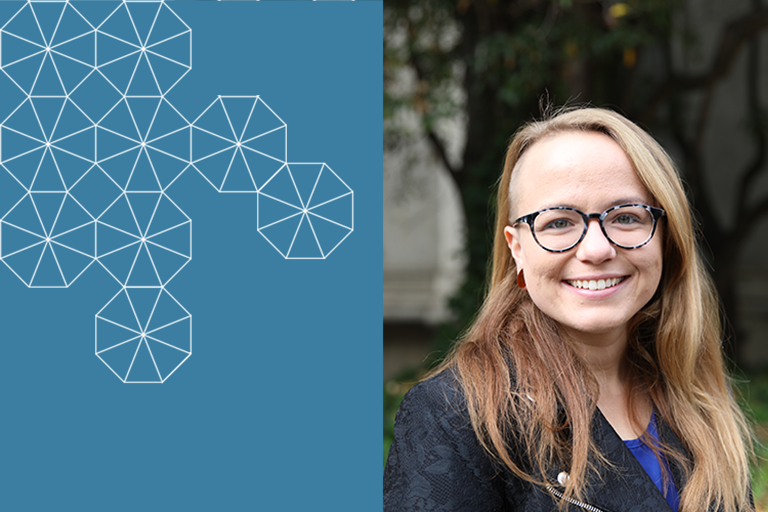IT offers technical training courses to Berkeley Lab employees in partnership with UC Berkeley. Click on the course titles below to learn more, then register through the Berkeley Lab portal.
FAQ: Can I get the recording of the workshop even if I don’t attend it live?
Yes, as long as you register ahead of time, you will automatically receive an email within a few days after the workshop (or workshop series) has completed.
- Berkeley Lab staff may contact Erin Scharfstein at ittraining@lbl.gov for training feedback.
- For trouble registering for courses, Zoom links, etc., contact dlab-frontdesk@berkeley.edu.
- Visit it.lbl.gov/training for more IT learning and consulting opportunities.
Course Listing
Excel Data Analysis: Introduction
September 5, 2023, 10:00 a.m. to 1:00 p.m.
This is a three-hour introductory workshop that will provide an overview of Excel, with no prior experience assumed. Attendees will learn how to use functions for handling data and making calculations, how to build charts and pivot tables, and more.

Python Intermediate: Parts 1-3
September 5, 2023, 2:00 p.m. to September 12, 2023, 4:00 p.m.
This three-part interactive workshop series teaches you intermediate Python for people with previous programming experience equivalent to D-Lab’s Python Fundamentals. It covers loops and conditionals, creating your own functions, analysis and visualization in Pandas, and the workflow of a data science project.

Python Data Visualization Pilot: Parts 1-2
September 6, 2023, 10:00 a.m. to September 8, 2023, 12:00 p.m.
This workshop provides an introduction to visualization with Python. We will cover visualization principles and plotting with Matplotlib and Seaborn, working through examples in a Jupyter notebook and documentation of each plotting package. We’ll also learn about styles and customizing plots. Throughout the workshop, we’ll discuss the plot types best suited for particular kinds of data.

Excel Data Analysis: Charts, Pivot Tables, and VLOOKUP
September 7, 2023, 10:00 a.m. to 1:00 p.m.
This three-hour workshop will cover charts in more detail, review pivot tables, and the widely-used VLOOKUP function. We recommend first taking the introductory workshop Excel Data Analysis: Introduction.

R Fundamentals: Parts 1-4
September 11, 2023, 10:00 a.m. to September 20, 2023, 12:00 p.m.
This workshop is a four-part introductory series that will teach you R from scratch with clear introductions, concise examples, and support documents. You will learn how to download and install the open-sourced R Studio software, understand data and basic manipulations, import and subset data, explore and visualize data, and understand the basics of automation in the form of loops and functions. After completion of this workshop you will have a foundational understanding to create, organize, and utilize workflows for your personal research.

Python Fundamentals: Parts 1-3
September 11, 2023, 2:00 p.m. to September 18, 2023, 4:00 p.m.
This three-part interactive workshop series is your complete introduction to programming Python for people with little or no previous programming experience. By the end of the series, you will be able to apply your knowledge of basic principles of programming and data manipulation to a real-world social science application.

Bash + Git: Introduction
September 13, 2023, 1:00 p.m. to 4:00 p.m.
This workshop will start by introducing you to navigating your computer’s file system and basic Bash commands to remove the fear of working with the command line and to give you the confidence to use it to increase your productivity. You will also learn to use Git, a powerful tool for keeping track of changes you make to the files in a project.

Python Data Wrangling and Manipulation with Pandas
September 20, 2023, 2:00 p.m. to 5:00 p.m.
Pandas is a Python package that provides fast, flexible, and expressive data structures designed to make working with ‘relational’ or ‘labeled’ data both easy and intuitive. It enables doing practical, real world data analysis in Python. In this workshop, we’ll work with example data and go through the various steps you might need to prepare data for analysis.

R Data Wrangling and Manipulation: Parts 1-2
September 25, 2023, 10:00 a.m. to September 27, 2023, 12:00 p.m.
It is said that 80% of data analysis is spent on the process of cleaning and preparing the data for exploration, visualization, and analysis. This R workshop will introduce the dplyr and tidyr packages to make data wrangling and manipulation easier. Participants will learn how to use these packages to subset and reshape data sets, do calculations across groups of data, clean data, and other useful tasks.

Python Text Analysis Fundamentals: Parts 1-2
September 25, 2023, 2:00 p.m. to September 27, 2023, 5:00 p.m.
This two-part workshop series will prepare participants to move forward with research that uses text analysis, with a special focus on humanities and social science applications.

MaxQDA: Introduction
September 28, 2023, 2:00 p.m. to 5:00 p.m.
This two-hour introductory workshop will teach you MaxQDA from scratch with clear introductions, concise examples, and support documents. You will learn how to download and install the MaxQDA software, upload multiple forms of data then how to use manual and autocode features.

Finding Health Statistics and Data
October 3, 2023, 1:00 p.m. to 2:30 p.m.
Participants in this workshop will learn about some of the issues surrounding the collection of health statistics, and will also learn about authoritative sources of health statistics and data. We will look at tools that let you create custom tables of vital statistics (birth, death, etc.), disease statistics, health behavior statistics, and more.

Qualtrics Fundamentals
October 5, 2023, 2:00 p.m. to 5:00 p.m.
This workshop will introduce students to the basics of designing a survey instrument using the Qualtrics platform, such as randomization and survey flow. We will also cover more advanced topics like implementing embedded data and using javascript, as well as tips and tricks on how to use your design to maximize the number of quality responses you get.


